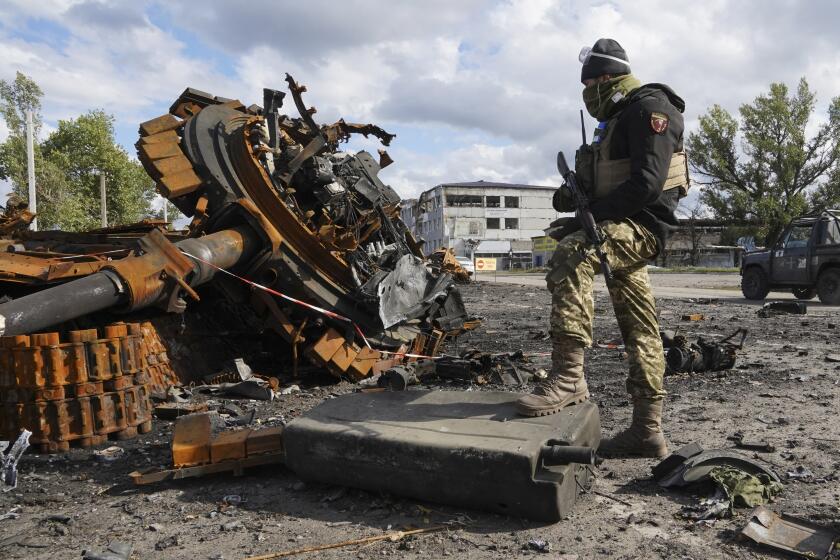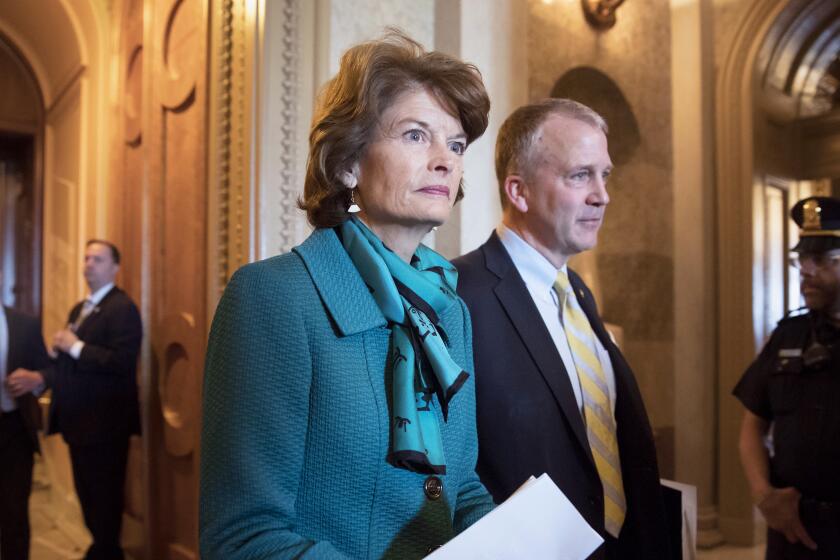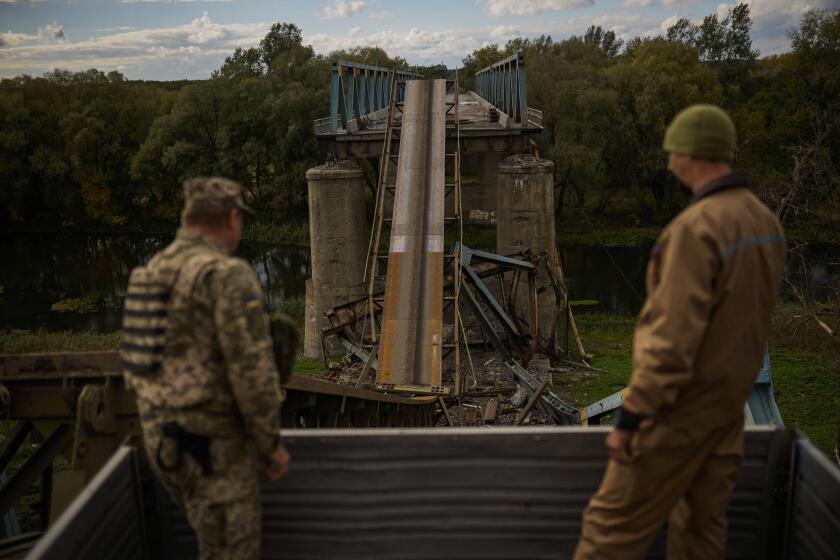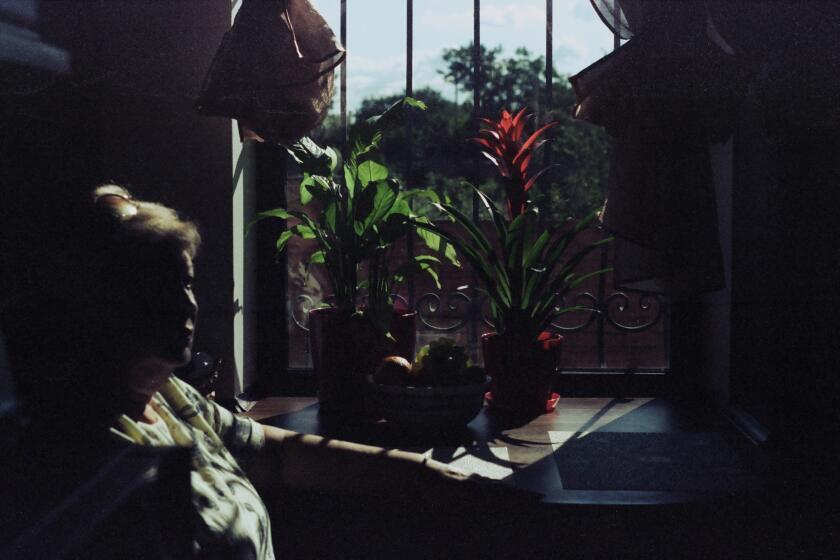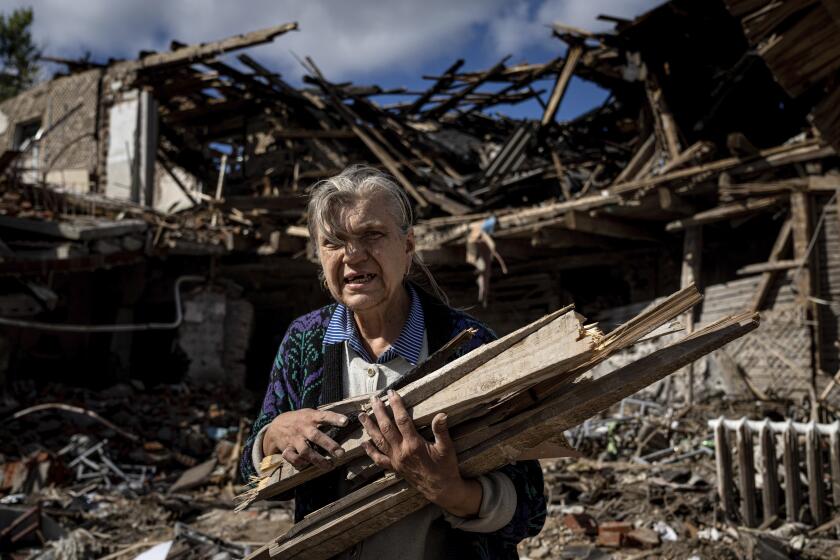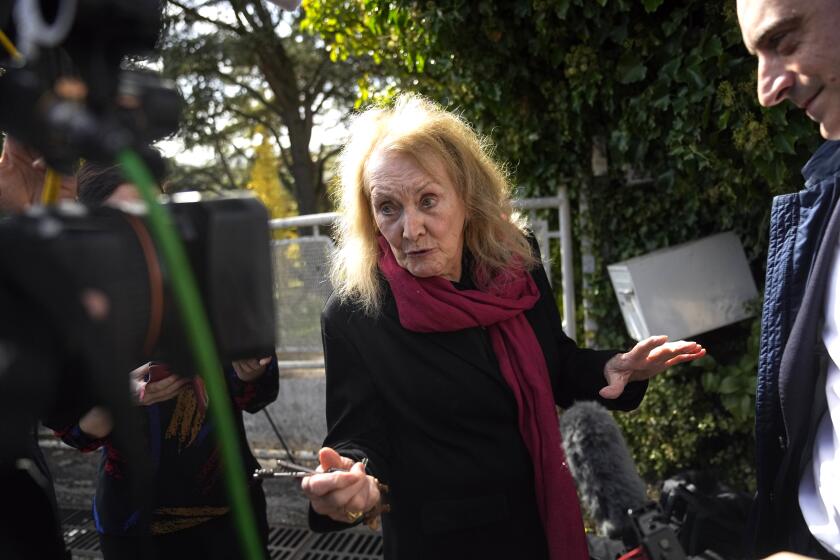Human rights activists in Russia, Ukraine and Belarus win Nobel Peace Prize, in rebuke to Putin
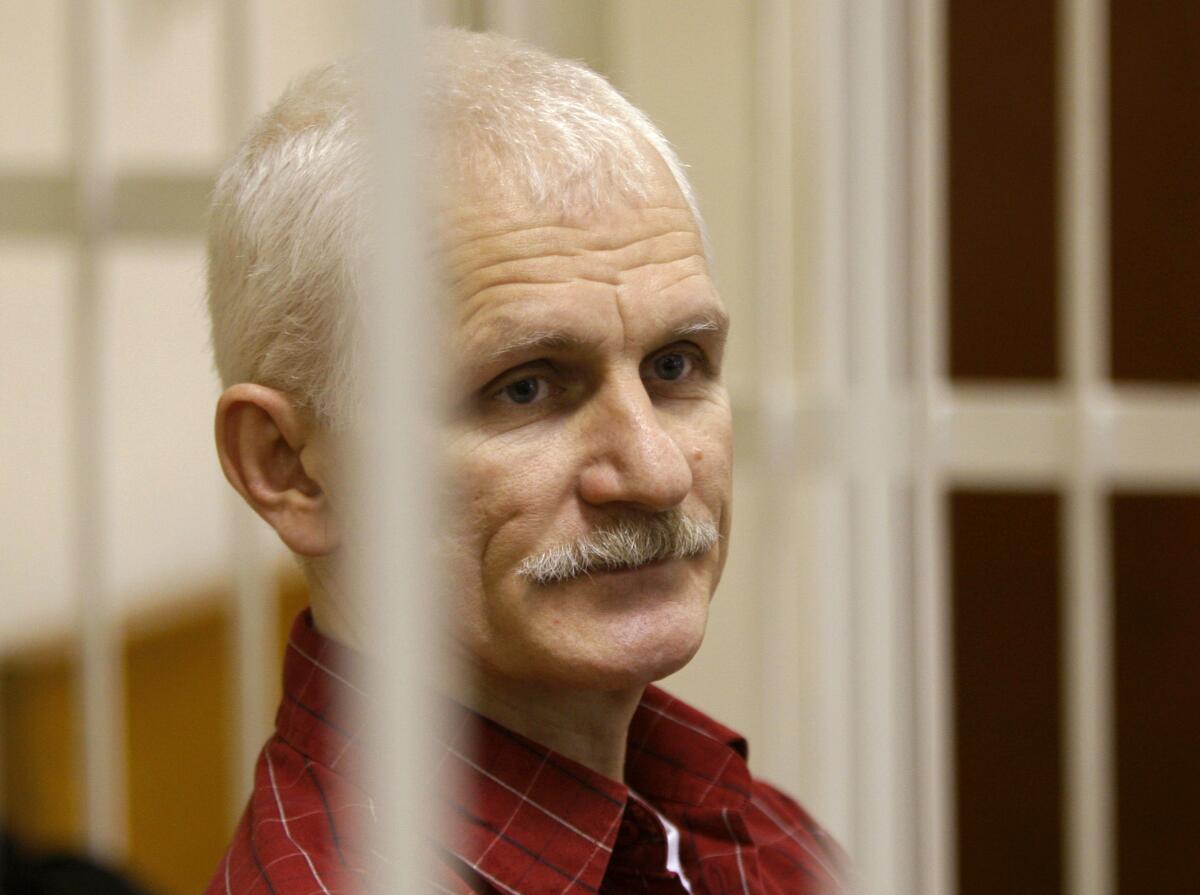
OSLO — Activists from Ukraine, Belarus and Russia won the Nobel Peace Prize on Friday — a strong rebuke to Russian President Vladimir Putin, whose invasion of Ukraine has outraged the international community, and to his authoritarian ally, the leader of Belarus.
Ukraine’s Center for Civil Liberties, the Russian human rights group Memorial and imprisoned Belarusian activist Ales Bialiatski were chosen by the Norwegian Nobel Committee to share the award. The announcement came as Russia’s war in Ukraine is well into its eighth month.
Berit Reiss-Andersen, chair of the Norwegian Nobel Committee, said the judges wanted to honor “three outstanding champions of human rights, democracy and peaceful coexistence in the neighbor countries Belarus, Russia and Ukraine.”
“Through their consistent efforts in favor of human values and anti-militarism and principles of law, this year’s laureates have revitalized and honored Alfred Nobel’s vision of peace and fraternity between nations, a vision most needed in the world today,” Reiss-Andersen told reporters in Oslo.
Belarus’ Foreign Ministry denounced the Nobel Committee for honoring Bialiatski, with a spokesman calling its choices in recent years so “politicized” that “Alfred Nobel got tired of turning in his grave.”
Asked whether the Nobel Committee was intentionally rebuking Putin, who turned 70 on Friday, Reiss-Andersen said that “we always give a prize for something and to somebody and not against anyone.”
As Russia’s military performance weakens, a notorious mercenary group, long part of the Ukraine fight, steps into spotlight.
“This prize is not addressing President Putin, not for his birthday or in any other sense, except that his government, as [is] the government in Belarus, is representing an authoritarian government that is suppressing human rights activists,” she said.
It was the second straight year that Putin’s repressive government was implicitly admonished with the prize.
It was awarded last year to Dmitry Muratov, the editor of independent Russian newspaper Novaya Gazeta, and Philippine journalist Maria Ressa, for their efforts to safeguard freedom of expression. Both have struggled in the last year.
This year the prize comes amid the largest war in Europe since World War II, a conflict that has displaced millions from their homes, destroyed cities and killed a still-undetermined number of people.
“We are talking about two authoritarian regimes and one nation fighting a war and we would like to highlight the importance of civic society,” Reiss-Andersen said.
Two Russians who said they fled the country to avoid compulsory military service have requested asylum in the U.S.
Bialiatski was one of the leaders of the democracy movement in Belarus in the mid-1980s and has continued to campaign for human rights and civil liberties in the authoritarian country. He founded the nongovernmental organization Human Rights Center Viasna.
Bialiatski was detained following protests in 2020 against the reelection of Belarusian President Alexander Lukashenko, a close ally of Putin. He remains in jail without trial.
“Despite tremendous personal hardship, Mr. Bialiatski has not yielded one inch in his fight for human rights and democracy in Belarus,” Reiss-Andersen said, adding that the Nobel panel was calling on Belarusian authorities to release him.
Exiled Belarusian opposition leader Sviatlana Tsikhanouskaya, visiting Paris, said the award would further increase the spotlight on Belarusian political prisoners and said she felt “honored and delighted” that Bialiatski was among the laureates, calling him a “famous human rights defender in Belarus and in the world” and a “wonderful person.”
Russian state-run media outlets that typically enthuse about Moscow’s war in Ukraine sang a different tune after the loss of a key Ukrainian city.
“For sure it will attract more attention to [the] humanitarian situation in our country,” she said.
Tsikhanouskaya, whose husband is also imprisoned, said Bialiatski “is suffering a lot in punishment cells” in prison in Belarus.
“But there are thousands of other people who are detained because of their political views, and I hope that it will raise awareness about our country and practical steps will have been done in order to release those people who sacrificed with their freedom,” she told the AP.
Memorial was founded in the Soviet Union in 1987 to ensure that the victims of communist repression would be remembered. It has continued to compile information on human rights abuses in Russia and tracked the fate of political prisoners in the country.
Russia’s highest court ordered it shut down in December, the latest move in a relentless crackdown on rights activists, independent media and opposition supporters.
Ukrainian authorities believe cases of sexual assault by Russian occupiers are vastly underreported. Shame and many factors underlie survivors’ unwillingness to report rapes.
Tatiana Glushkova, a board member of the Memorial Human Rights Defense Center, said she and her colleagues were “very, very happy” to have the importance of their work recognized.
Glushkova said one of the reasons the Kremlin views Memorial as a threat is “because Memorial understands the parallels between Putin’s regime and the Soviet regime ... Stalin’s regime. And it makes these parallels published and informs everyone about how all these regimes are similar.”
She said that some previous Nobel Peace Prize winners were heads of state, but in modern Russia “working for peace, it’s not the work of the state — it’s the work of civil society.”
Glushkova noted that the prize was awarded to the group on the day when it once again had to appear in court in Moscow, this time on a case related to its office building in central Moscow.
A team of experts commissioned by the U.N. says its initial investigation has turned up evidence of war crimes by Russian troops in Ukraine.
International Memorial owned the building, but after the group was shut down, it gave the building to one of its affiliate organizations, the Memorial Research and Education Center. Russian authorities are contesting the deal in court, and the prosecutor general’s office filed a motion to invalidate it.
Memorial considers the move an attempt to seize the building and hinder the organization’s operation.
Ukraine’s Center for Civil Liberties was founded in 2007 to promote human rights and democracy in the country during a period of turmoil.
After Russia’s invasion of Ukraine in February, the group has worked to document Russian war crimes against Ukrainian civilians.
“The center is playing a pioneering role with a view to holding the guilty parties accountable for their crimes,” said Reiss-Andersen.
Breaking News
Get breaking news, investigations, analysis and more signature journalism from the Los Angeles Times in your inbox.
You may occasionally receive promotional content from the Los Angeles Times.
A representative of the Center for Civil Liberties, Volodymyr Yavorskyi, said the award was important for the organization, because “for many years we worked in a country that was invisible.”
“Human rights activity is the main weapon against the war,” said Yavorskyi, who is married to a Belarusian and lived in Minsk, Belarus’ capital, until May 2021, when he was expelled along with his 9-year-old son. He is barred from entering Belarus for 10 years and said law enforcement beat him during interrogations.
A week of Nobel Prize announcements kicked off Monday with Swedish scientist Svante Paabo receiving the award in medicine for unlocking secrets of Neanderthal DNA that provided key insights into our immune system.
Yes, awarding the Nobel Prize in literature to Ernaux, a chronicler of illegal abortion, is a political move. But it’s also a victory for literature
Three scientists jointly won the prize in physics Tuesday. California scientist John F. Clauser, Frenchman Alain Aspect and Austrian Anton Zeilinger had shown that tiny particles can retain a connection with each other even when separated, a phenomenon known as quantum entanglement, which can be used for specialized computing and to encrypt information.
The Nobel Prize in chemistry was awarded on Wednesday to Californians Carolyn R. Bertozzi and K. Barry Sharpless and Danish scientist Morten Meldal for developing a way of “snapping molecules together” that can be used to explore cells, map DNA and design drugs able to target diseases such as cancer more precisely.
French author Annie Ernaux won this year’s Nobel Prize in literature Thursday. The panel commended her for blending fiction and autobiography in books that fearlessly mine her experiences as a working-class woman to explore life in France since the 1940s.
The 2022 Nobel Prize in economics will be announced Monday.
More to Read
Sign up for Essential California
The most important California stories and recommendations in your inbox every morning.
You may occasionally receive promotional content from the Los Angeles Times.
